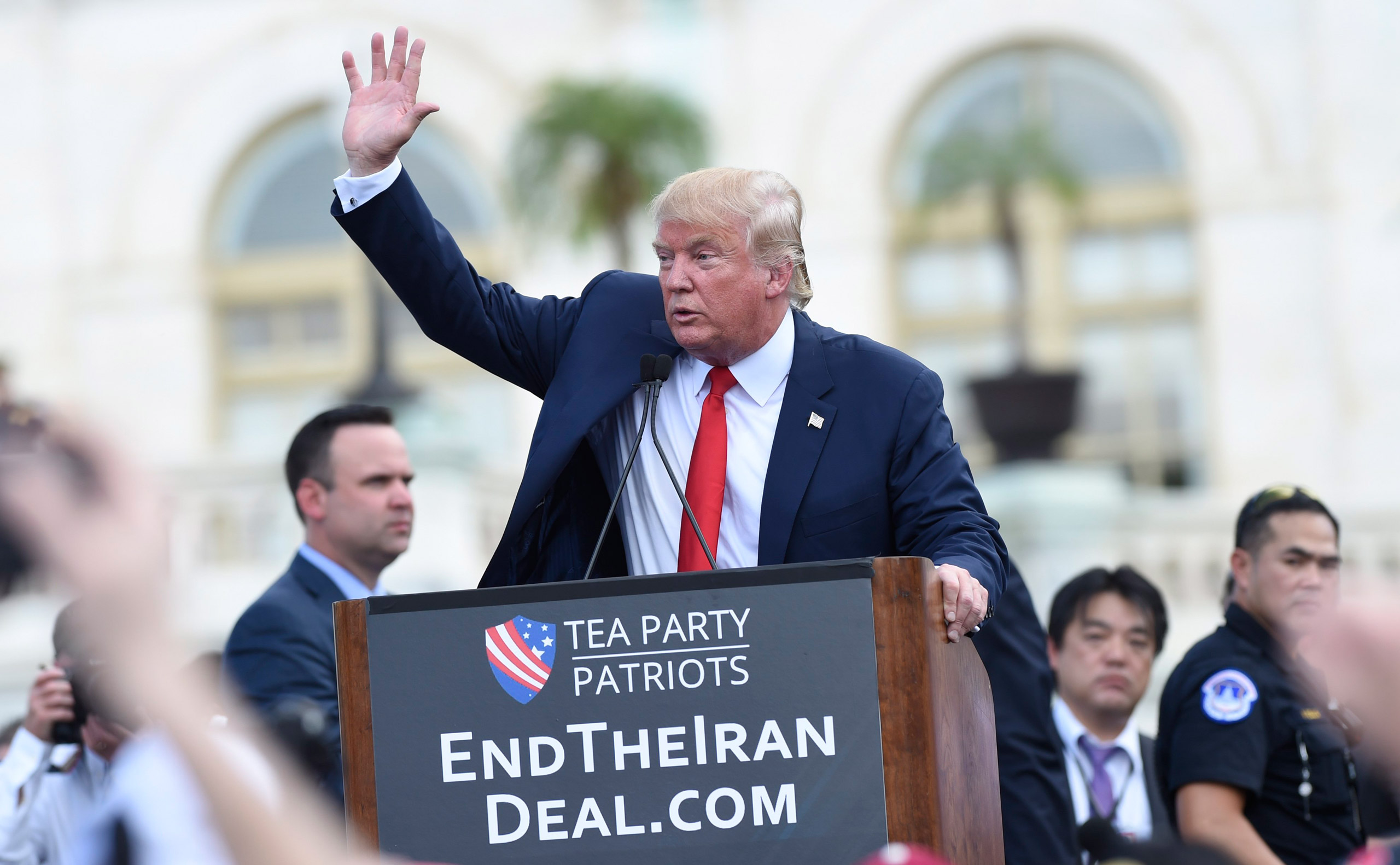The Commander in Chief of Iran’s Islamic Revolutionary Guard Corps (IRGC) called for boosting Iran’s defense capabilities following U.S. President Donald Trump’s announcement on Tuesday that the U.S. will be pulling out of the Joint Comprehensive Plan of Action, better known as the nuclear deal, which had been agreed to under the Obama administration in 2015.
“We welcome Trump’s decision on pulling out of the deal. This is not a new event and would have no determining impact on any area that may threaten our national interests. It was completely clear that the Americans are not trustworthy, and one more time has been proven Americans cannot be trusted for any kind of negotiation or agreement” Major General Mohammad Ali Jafari said while addressing a military conference in Tehran on Wednesday, according to reports by Tasnim.
“From now on, we, the Armed Forces, should pay more and deeper attention to enhancement of defense power and pursue the main factors of our own power,” Jafari said.
Trump announced from the White House on May 8 that the United States will withdraw from the agreement, saying that Washington “will be instituting the highest level of economic sanctions” on Iran. Trump signed a presidential memorandum to begin reinstating nuclear-related sanctions.
The U.S. has for long accused Iran of sponsoring terrorism and seeking nuclear weapons, and Trump has been skeptical since his presidential campaign of Iran’s motivations for entering the deal. He described it as “defective at its core,” despite Iranian officials maintaining their stance that the country’s nuclear program is peaceful. The International Atomic Energy Agency has verified that Iran has been in compliance with the deal, struck between Iran, the five permanent members of the UN Security Council and Germany.
In a response to Trump’s announcement, Iranian President Hassan Rouhani said in a televised address that the accord remained a multilateral one, and not just with the U.S., adding that Tehran is ready to resume its nuclear work after holding talks with European Union signatories of the deal.
Iran hopes the European Union will pass laws to protect European firms from any potential U.S. sanctions, which could prohibit them from executing multi-billion dollar deals that Iran has negotiated with European firms. EU officials have suggested they will do what they can to salvage the agreement. The JCPOA allowed Iran’s economy to re-engage with world trade, especially to develop closer banking cooperation with European countries.
Iranian officials have stated that they will remain within the JCPOA if France, Germany and the U.K. cooperate with Tehran, and stand firmly behind the deal.
On Wednesday, in a phone conversation with Rouhani, French President Emmanuel Macron expressed regret over Trump’s decision to withdraw from the deal and said that the framework of the JCPOA must be maintained.
“Europe will cohesively attempt to maintain the JCPOA,” Macron stressed.
The EU is Iran’s top trading partner and its second-biggest oil customer. Iran’s exports of mainly fuel and other energy products to the EU in 2016 jumped 344 percent to 5.5 billion euros ($6.58 billion) compared with the previous year, while investment in Iran jumped to more than 20 billion euros. The EU trade with Iran has more than tripled from the pre-deal low of $7.44 billion to $25 billion last year.
The French energy giant Total signed a billion-dollar contract in 2016 to develop part of a gas field in southern Iran. Italy's Eni and Saras, Russia's Lukoil, Spanish refiner Cepsa, Royal Dutch Shell and Hungary’s MOL are also amongst Iran's oil customers.
Now, the EU has started working on proposals to protect EU-Iranian businesses. The EU plans include blocking measures and non-dollar business deals or to offer euro finance through multilateral institutions.
The aircraft sales were among the most sought-after contracts for Iran. U.S. Treasury Secretary Steven Mnuchin told a group of reporters on Tuesday that “the Boeing and Airbus licenses will be revoked.”
According to the Washington Post, airplane manufacturers Boeing and Airbus will lose out on a $39 billion deal due to sanctions imposed as a result of the U.S. withdrawal from the agreement.
In December 2016, Airbus Group signed a deal to supply national carrier Iran Air with 100 airplanes for around $19 billion at list prices. In the same month, Boeing inked a deal with Iran Air for 80 aircraft with a list price of about $17 billion, promising that deliveries would begin in 2017 and run until 2025. The company separately signed a 30-airplane deal with Iran’s Aseman Airlines for $3 billion at list prices.







 President Aliyev emphasized the critical role of the North-South Transport Corridor in fostering transport cooperation between Azerbaijan and Russi...
President Aliyev emphasized the critical role of the North-South Transport Corridor in fostering transport cooperation between Azerbaijan and Russi...
 Armenian sappers commenced on Monday mine-clearance operations in the territories adjacent to the Saint Mary Church in village of Voskepar (Armenia...
Armenian sappers commenced on Monday mine-clearance operations in the territories adjacent to the Saint Mary Church in village of Voskepar (Armenia...
 The Mine Action Agency of Azerbaijan (ANAMA) reported on Thursday the discovery of a significant amount of explosives in the Khojavand district of ...
The Mine Action Agency of Azerbaijan (ANAMA) reported on Thursday the discovery of a significant amount of explosives in the Khojavand district of ...
 Russian Foreign Minister Sergei Lavrov has reasserted that Moscow has no intentions to stop the fighting in Ukraine, even if peace talks commence.
Russian Foreign Minister Sergei Lavrov has reasserted that Moscow has no intentions to stop the fighting in Ukraine, even if peace talks commence.



